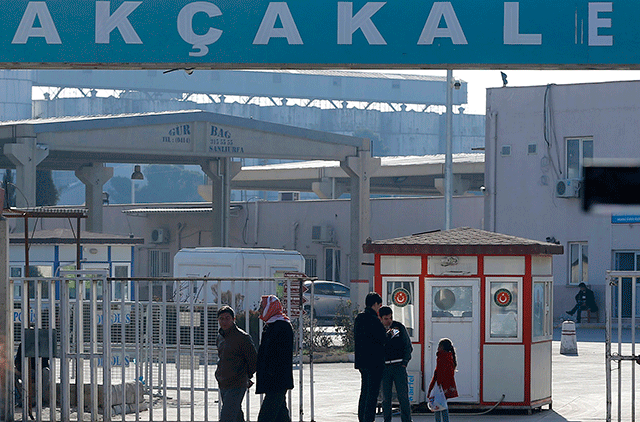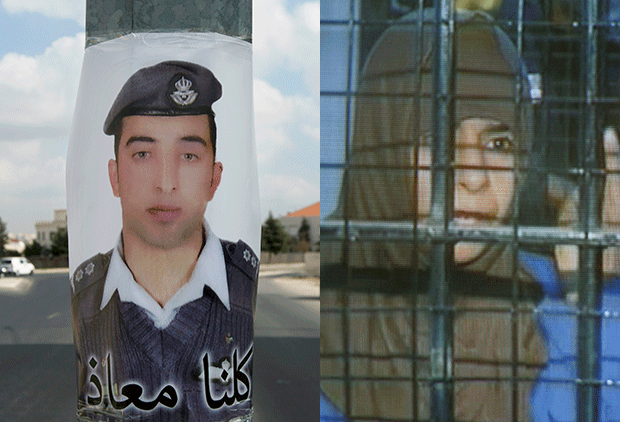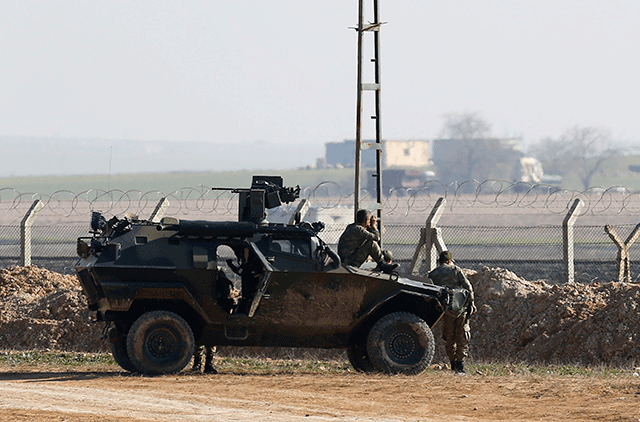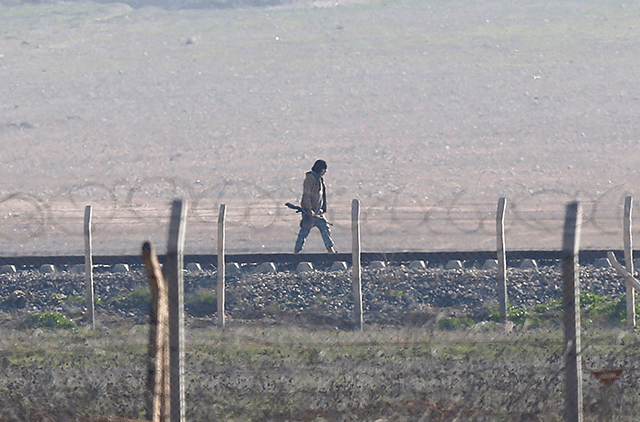
Amman: Jordan and Japan must prepare a prisoner for exchange by sunset in Mosul on Thursday, according to a new recording apparently of the Japanese hostage Kenji Goto released online.
The recording says Sajida Al-Rishawi, an Iraqi woman sentenced to death in Jordan for her role in a series of 2005 suicide bombings, must be ready for exchange on the Turkish border.
Daesh, also known as Islamic State of Iraq and the Levant (and Isis), is holding Mr Goto. If its demands are not met, the recording says, it will immediately kill Muath Al Kasaesbeh, a Jordanian pilot captured by the group last month.
Previous messages indicated that Daesh was prepared to exchange Mr Goto for Rishawi. On Wednesday Jordan said it was willing to hand over Rishawi in exchange for Mr Kasaesbeh, but made no mention of Mr Goto.
The latest message appears to represent an attempt by Daesh to control and force the pace of negotiations over a possible exchange for Mr Goto, while driving a wedge between the governments of Jordan and Japan.
Delivered in English, it says: "I am Kenji Goto. This is a voice message I have been told to send to you. If Sajida Al Rishawi is not ready for exchange for my life at the Turkish border by Thursday sunset 29th of January, Mosul time, the Jordanian pilot Muath Al Kasaesbeh will be killed immediately."
In an earlier video on Saturday, Mr Goto said another Japanese hostage, Haruna Yukawa, had been killed after the deadline for a $200m ransom had passed.
Mr Yukawa was a security company owner who disappeared in Syria last August.
None of the recordings has been authenticated. The voice in the Saturday video said Isis had changed its demand from a $200m ransom to the release of Rishawi.
Rishawi is serving a life sentence for her role in a string of bombing attacks on Amman hotels that killed 60 people in November 2005. She entered one of the hotels wearing an explosive belt that failed to detonate.
Rishawi's brother, Thamer al-Rishawi, was a close aide to Abu Musab al-Zarqawi, founder of al-Qaeda in Iraq, the predecessor of Daesh.
Nasser Judeh, Jordan's foreign minister, said late on Wednesday that Jordan was working with Japan to free both Mr Goto and Mr Kasaesbeh, but its priority was to secure the Jordanian's release.
"As you know, or priority is our pilot," Mr Judeh said in an interview with CNN. "But we are co-operating very closely with our Japanese friends and allies. It is Isis . . . that have tied the fate of the two captives together."
Mr Judeh said Jordan had begun negotiations through third parties to secure the pilot's release some weeks earlier. He said the Jordanian government had sent messages through indirect channels to the militant group "over the last period" asking for proof of life for the pilot, but had not received this.
Yoshihide Suga, Japan's chief cabinet secretary, said Tokyo was working to verify the recording and that there was a high chance it was genuine.
"On the basis that Mr Goto is alive, we are putting all our effort into securing his release as early as possible," said Mr Suga. "We are appealing for co-operation through a range of channels."
The crisis has divided Jordan's rulers, who have positioned the kingdom as a key ally in the fight against Daesh and extremism, and the public, who are clamouring for the pilot's release.
Father's appeal
On Wednesday evening King Abudullah met Safi Kasaesbeh, the father of the captured pilot, who has led calls for the government to do more to free his son. Relatives and supporters held the latest of a series of demonstrations on Wednesday evening in Amman, holding pictures of the pilot, whose plane was shot down over Raqaa, Syria, last month.
"There was a fear from the beginning that Daesh would play this card to divide public opinion," said Oraib al-Rantawi, head of the Al-Quds Center for Political Studies in Amman. "The government has said we need to be united at this critical moment in order not to give Daesh the ability to put pressure on it. Unfortunately, the family pressured public opinion."
Mr Abe is also in a difficult spot, reminding the Japanese public of the dangers of international engagement even as the prime minister seeks a more assertive role in global security affairs.
The $200m ransom was the same figure Mr Abe had pledged in assistance to countries battling the militant group - leading some opposition figures to question his high-profile offer - although Japanese officials emphasise it was non-military support for refugees and displaced persons from Iraq and Syria.















